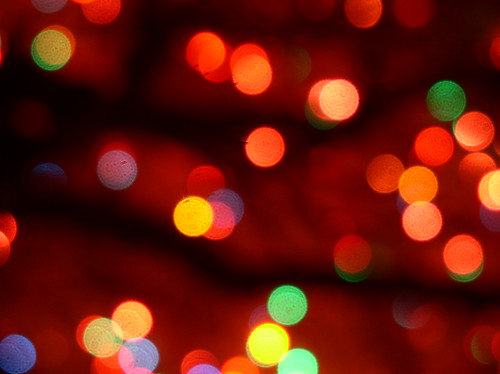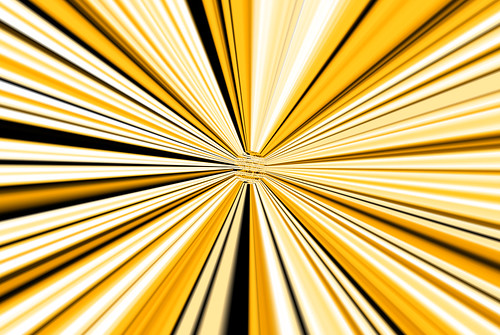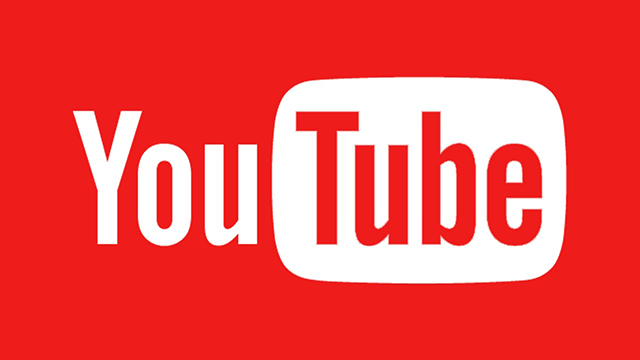Youtube
Once upon a time, I had to perform on-the-spot at a bar in downtown Austin. I was completely unprepared, so I found a couple of rubber bands and passed them through each other as if by magic.
I got a pretty decent response from the trick.
One of the guys watching asked how I did it, and I responded, “I can’t tell you or they’ll come after me,” secretly hoping he would just forget about it. He shrugged his shoulders, pulled out phone, and in about a minute started watching a video on Youtube that explained exactly what I did.
So it might be surprising to hear me say that Youtube could be one of the best things to happen to magic. How? Well, let’s step back for a moment and think of Youtube and the Internet as a whole in a wider context.
Paradoxically, the greatest fear of many magicians is being exposed as a charlatan.
Youtube, like a hundred Masked Magicians, facilitates this exposure on an instantaneous and personal level, and for this it’s disliked and even feared. But, have we really been exposed instantaneously? Hardly.
It all started back in the year 1584, when a man named Scot decided that it would be a good idea to publish some of the magician’s secrets. This was actually a great idea—especially if you were a magician in 1584 and wanted to avoid being burned at the stake.
But publishing the secrets of the magician continued long after the danger of being executed for witchcraft had subsided³, and magic books and manuscripts began to be more instructional. (Even Robert-Houdin got started after accidentally discovering of one of these books.)
Continuing through the 19th and 20th century, more and more secrets found their way onto more and more shelves. The seeds of commercialization sprouted, and the sale of magic secrets in the form of publications became a business. While this business was aimed at those with a genuine interest in magic, it was inevitable that the secrets would find their way into the hands of those with a mere passing interest. After all, publication—while necessary for almost every magician reading this—is nevertheless a form of exposure.
In other words, we’ve had 420 years of increasing exposure before the first video was ever uploaded to Youtube.
So, if we can’t blame Youtube and the Internet for starting the trend of widespread exposure, can they still be at fault for the sheer accessibility of the material? As we all know, it takes only a minimum of Internet savvy to find the secret to almost any commonly performed effect—especially if one is persistent.
It wasn’t always this way. Many of the magicians reading this had quite a different experience when they were starting off in magic.
Typically, a boy of about 10 years old saw a magician at a party, found his way to 793.8 in the library, and took his pick of the three books there. (Or, alternatively, there were no magic books in his library, and he took up chess instead.) Later, the young man looked through the phone book for a magic shop. If he was lucky, there was one less than three hours away. That was the level of access at the time.
When a boy or girl becomes interested in magic today, they can have any product, book, or DVD delivered to their doorstep by the end of the week from one of several online outlets, and in the meantime, they can stream 100 hours of online magic video. This seems like an entirely new paradigm, and it is, but it also isn’t.
What we are forgetting to do is take into account the change in the meta flow of information, in other words, the flow of information more generally.
Back when most people were getting into magic, their parents were receiving Montgomery Wards catalogs in the mail and placing their orders by telephone or postal mail. If someone wanted to know what happened on April 15th of a specific year, they had to take a trip to the city library and spend hours looking through microfiche. Ah, the sweet aroma of microfiche.
Essentially, the access points for information were fewer, farther between, and temporally distant, i.e., it took some time to get to them. In decades past, the speed limit of every piece of information was much, much slower. Then, the Superhighway arrived, and ushered in the Age of Information.

cc licensed flickr photo shared by Jason A. Samfield
Now that we understand the difference in the speed of information from past to present, it’s easier to see that Youtube fits within this new structure just like the library and magic shop did within the older structure. But, how can something faster be equated with something slower? Relativity, my dear Einstein.
Back in 1992 when everyone had dial-up 14.4k Internet access, it took someone two full minutes to download one picture from their family reunion. Even at that speed, they thought it was amazing how fast that photograph could go from one place to another!
Today, you would expect that picture instantaneously, and if it took more than a couple seconds, you would curse your Internet provider and do that thing where you click the mouse way too many times.
In 1992, you might have put in the hour-long effort to download 25 images one-by-one, whereas today you wouldn’t spend an hour to get 25 pictures unless they were extremely important to the “task at hand.”
The key word here is effort. Today, the person who wants to know the magic secret will make the same amount of effort to get it as the person who wanted the secret three decades ago―not in absolute effort, but in relative effort.
Taking a trip to the library in 1986 was about the same amount of relative effort as spending time finding the secret on the Internet is today. Yes, it took longer back then, but this wasn’t because they were putting in more relative effort, but instead related to the paradigm of information accessibility and the speed of information itself.
In other words, with an increase in the speed and accessibility of information, the speed at which one can access magic secrets will also increase proportionally; nevertheless, a certain threshold of internal motivation must be reached before that person is going to seek out the secret in the first place, and this amount hasn’t changed much when we account for the new speed of information.
If you don’t believe me, you can look at the other side of the equation. A television show from 40 years ago catered to a viewer’s attention span much differently than a show does today. This had to change to reflect the amount of relative effort a person is willing to make today.
Now, it could be argued that speed and accessibility increase exponentially when there is a “point of consolidation,” a place where everyone tends to contribute information and also seek it—a place like Youtube.
But this is partially a trick of centralized quantity. Magic isn’t the exception here. Not only are there more magic secrets available online in one place, there is more of everything in one place! Compare Netflix with Blockbuster, Spotify with CD Warehouse, or Zappos with Foot Locker. Magic, being in the flow of information and commerce for hundreds of years is simply following the rest of the connected, online world.

cc licensed flickr photo shared by zbigphotography
So, let’s return to the provocative idea that Youtube is one of the best things for magic. Well, “best” is a bit of hyperbole, but even still, why would Youtube and the access to secrets it represents be good for magic at all?
Because it challenges not only the current commercial business model of magic, but also the fundamental way in which magic is performed by many magicians. And why is it good to be challenged in this way? Because now Magic can see what it’s been up against for some time, but has chosen to ignore or explain away previously. The magic community is now informed, and so is everyone else.
If we continue to grow the business of magic secrets and, by extension, the population of those with arcane knowledge, there will be more exposure and even fewer secrets. But, let’s be honest, there are more and more magic enthusiasts with disposable income every day, and the commercialization of magic has made a way for a lot of great people to support their families by catering to this demographic. And what about these newcomers?
Most, by virtue of their being new, do not have a strong respect for the secrets of the craft. But, did anyone try to fix this before selling them $500 in merchandise? The guy who gets the latest Ellusionist, Penguin, or theory11 products is probably not deliberately violating an oath when he posts the un-boxing of his newly purchased magic tricks, and proceeds to reveal in detail the inner workings of each one; he’s just fitting into the world as he knows it.
He’s not really all that different from the people who reveal their friends’ secrets on Facebook, publish the secret formula for Coca Cola, or show you how to jailbreak your iPhone. And, he’s not that different from the guy in 1975 who went around after the magic show telling everyone how it was done.
The Age of Information is an Age of Revelation.
Whether it’s personal privacy, corporate insider information, government secrets, or magic tricks, it is all being revealed more than ever. I’m not equating all of those, but they all fit with the idea of an Age of Revelation, and contribute to the general zeitgeist.
In light of this, should it be surprising when someone looks up the secret you just refused to tell them? In their mind, how dare you withhold something like a secret to a magic trick? After all, they have been freely given the secrets to everything from the private lives of celebrities to the national secrets of world governments, and here you are telling them they can’t know how the card got to the top of the deck?
This is the new entitlement.
Now we’re starting to see how what seems like a big deal to our inner circles is viewed as trivial to those outside those circles, and exposure doesn’t have the same gravity out there.
As it relates to magic, this exposure will occasionally make its way to Youtube. It doesn’t even require an exposé-style video. Users can simply comment under the video of a performance with a detailed explanation, and a magical thing will happen. That comment will get voted up by other readers until it is one of the first few comments displayed underneath the video.
This collective “Thank You” from the online community is received as positive reinforcement by the user, and that leads to more comments of the sort. Now, I don’t think all of these commentators reveal the secret to be malicious. They think it’s what they are supposed to do when they see a magic trick. See the trick; figure out how it’s done; share. That last step is the most recent addition, fits within the new sharing movement, and explains a lot of Youtube exposure videos and comments.
Finally, let’s look at the challenge Youtube gives the performer. This might be better framed as the question, “What survives without the secret?” You must have an answer to this question if you want to be anything more than a footnote in someone’s lecture notes.
When I was performing on-the-spot at the bar in Austin that night, I hadn’t answered the question. I’m still answering it even though I feel the answer is, and must be, the story.
There is a distinction, however, that centers on whether you allow the spectator to write their own story (e.g., David Blaine, Daniel Garcia) or you construct most of the narrative (e.g., Eric Mead, Barrie Richardson). That distinction could be an entire essay of its own, and for the record, I’m a big fan of both. The former tends to be more visual, direct, and concise; the latter is felt more than seen, more subtle, and in-depth. Staccato and legato—both can resonate.
You do not have all of the secrets anymore, but you never did. It’s not that your secrets are revealed more often than they were with the post-performance chatter and inquiries of yesteryear, but now it’s more in your face. So, what do you do? Accept it.
Youtube simply is.
It is unstoppable. Some will protest, saying that the passing down of secrets from one to another sustained magic before publishing, and advocate returning to this mentor/apprentice relationship. While this can work, and is working, in individual cases, this is not a practical solution for the whole world of magic.
The collective effort and sacrifice necessary to even significantly slow the demise of the magician’s secret is far too great to be considered feasible. You may wish it were otherwise, but it would be naïve to think it can be reversed.
In the future, you may even see someone filming your performance with their shiny new iPhone 16¹, where a special app will automatically match the video to similar videos online instantly. Be prepared.
So, in a world where your secret may have a shelf-life of hours or minutes, what will be your unique selling proposition? How can you infuse mystery into your performances without relying on the secret alone? What are you really trying to accomplish as a magician? Are you wanting to be seen as someone special whose powers give him power over others? If so, you will be painfully exposed as impotent. But, if you choose aim to connect with an honest and genuine story that takes a magical form, you will never have to worry about being exposed for who you really are.
The real secrets are safe in a special place, waiting.
//
¹The original said iPhone 7, but I might have overestimated the speed of app development a bit.
The original version of this essay was published on Posterous in May 2011 and can be found in the January 2012 issue of MAGIC Magazine.
